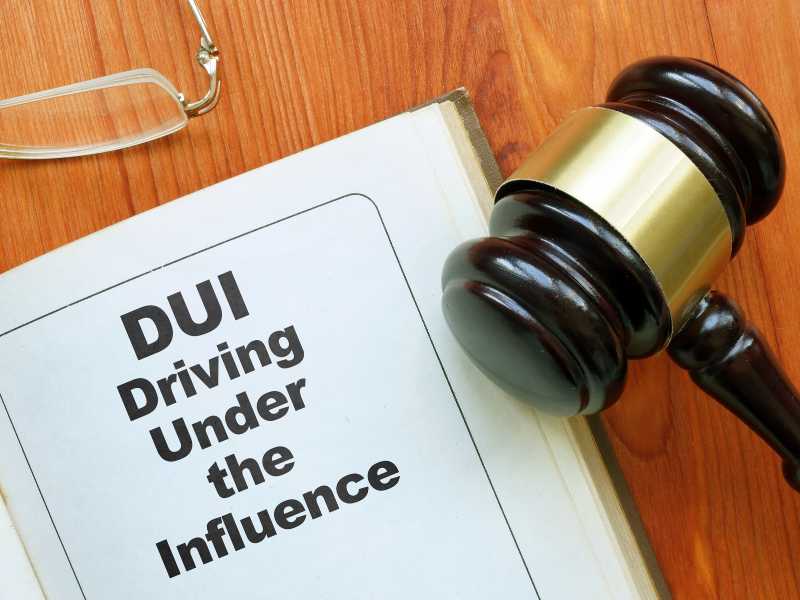Introduction
Driving under the influence (DUI) is a major offense that can have serious repercussions. From significant fines to certify suspension and even jail time, the charges for a DUI conviction are not to be ignored. If you discover yourself dealing with drunk driving charges, it's crucial to comprehend your rights and choices. In this article, we will offer you with valuable suggestions from knowledgeable lawyers on how to resist drunk driving charges and browse through the legal process.
Defending Against Drunk Driving Charges: Leading Tips from Skilled Lawyers
1. Talk to a DUI Attorney for Legal Guidance
When charged with a DUI, it is necessary to look for legal representation immediately. A competent DUI attorney specializes in defending clients against drunk driving charges and understands the intricacies of DUI laws. They can assess your case, collect evidence, read more and establish a strong defense method tailored to your distinct circumstances.

2. Understand DUI Laws and Penalties in Your Jurisdiction
DUI laws and penalties vary from one state to another or country to country. Familiarize yourself with the specific laws and charges in your jurisdiction to better understand the possible consequences you may deal with. This understanding will help you make notified decisions regarding your defense strategy.

3. Collect Proof to Challenge the Arresting Officer's Testimony
One reliable method of challenging a dui information in Fremont DUI charge is by examining the jailing officer's statement for inconsistencies or mistakes. Obtain any readily available evidence such as dashcam video, monitoring videos, or witness declarations that may oppose the officer's version of events. This proof can significantly impact your case and damage the prosecution's argument.
4. Concern the Credibility of Field Sobriety Tests
Field sobriety tests (FSTs) like walk-and-turn or one-leg stand tests are frequently utilized by police officers during DUI stops. However, these tests are not foolproof and can be influenced by numerous aspects such as medical conditions, physical constraints, or even uneasiness. Obstacle the credibility of FST results with the help of your attorney to cast doubt on their accuracy.
5. Obstacle Breathalyzer and Blood Test Results
Breathalyzer and blood tests are typically used to determine blood alcohol concentration (BAC) levels throughout a DUI arrest. However, these tests can yield inaccurate results due to defective equipment calibration, inappropriate administration, or other external aspects. Your attorney can examine the scenarios surrounding your test and challenge their reliability in court.
6. Check Out Possible Fourth Amendment Violations
The Fourth Amendment protects people from unreasonable searches and seizures. If police officers breached your rights throughout a traffic stop or arrest, it might supply premises for a termination or reduction of charges. Seek advice from your attorney to determine if any Fourth Amendment infractions happened in your case.
FAQs about Defending Against Drunk Driving Charges
Q1: Just how much does a DUI attorney cost?
A: The cost of working with a DUI attorney can vary depending upon several aspects such as the intricacy of the case, the lawyer's experience, and your place. Usually, DUI attorney fees range from $1,500 to $5,000 or more.
Q2: How can I beat a DUI charge?
A: Beating a DUI charge requires a strong defense technique tailored to your particular scenarios. Working carefully with an experienced DUI attorney how to get out of a dui charge will increase your opportunities of accomplishing a favorable outcome.
Q3: What are the various kinds of DUI charges?
A: DUI charges can vary depending upon elements such as BAC levels, prior convictions, involvement in mishaps, or endangering minors. Common kinds of DUI charges consist of very first offense DUI, aggravated DUI, felony DUI, and underage DUI.
Q4: What are the penalties for a DUI conviction?
A: Penalties for a DUI conviction can consist of fines, license suspension, necessary alcohol education programs, probation, social work, and even jail time. The severity of the penalties depends on elements such as BAC levels and prior convictions.
Q5: What must I do if I get jailed for a DUI?
A: If you get detained for a DUI, stay calm and cooperate with law enforcement officers. Refrain from making any self-incriminating statements and contact a DUI attorney as soon as possible to secure your rights and develop a strong defense.
Q6: How long do DUI charges stay on my record?
A: The length of time a DUI charge stays on your record varies depending upon your jurisdiction. In many cases, DUI charges may remain on your record permanently. Nevertheless, certain jurisdictions permit expungement or sealing of DUI records after a defined period.
Conclusion
Defending versus drunk driving charges requires a thorough understanding of the legal procedure and the ability to browse through it successfully. By following the top tips offered by experienced attorneys, you can increase your chances of accomplishing a beneficial outcome in your DUI case. Keep in mind to talk to a reliable DUI attorney who can guide you through every step of the defense process and protect your rights. With proper legal representation and a robust defense strategy, you can efficiently battle versus drunk driving charges and mitigate the prospective consequences.